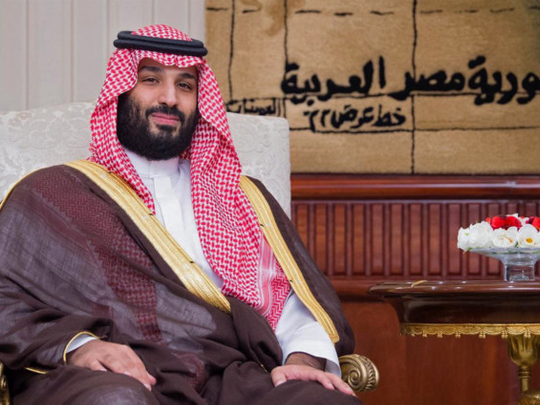
London: Saudi Crown Prince Mohammed bin Salman finally gave the go-ahead for the initial public offering of Aramco, deciding there’s enough support from local investors for what’s likely to be a record share sale.
The crown prince made the decision at a meeting he chaired on Friday and an official announcement is likely as soon as Sunday, according to people familiar with the matter, who asked not to be named before an official statement.
The partial privatisation will be a deal like few others and the biggest change to Saudi oil industry since the company was nationalised in the 1970s. Aramco, which pumps 10 per cent of the world’s oil, is the most profitable company globally and the backbone of the kingdom’s economic and social stability.
First suggested by Prince Mohammed in 2016, the IPO was delayed several times. An earlier plan to kick off the share sale in mid-October was shelved, and the deal will likely rely heavily on Saudi money.
The sale is key to Prince Mohammed’s Vision 2030 plan to overhaul the Saudi economy and end the kingdom’s reliance on oil exports. The proceeds from the IPO will boost the firepower of the Opec nation’s sovereign wealth fund.
Grabbing a role in the deal has been one of the most hotly contested mandates for global banks. More than 20 are working on the deal, with the top roles going to firms including Citigroup Inc, Goldman Sachs Group Inc, and JPMorgan Chase & Co.
The original plan to list Aramco in either New York or London was dropped in favour of a Riyadh-only flotation.
To get the deal done, Aramco’s bankers will need hefty contributions from the kingdom’s wealthiest families, many of whom were targeted in the 2017’s corruption crackdown. Authorities said they raised over $100 billion in colonies from people accused of graft.
Local asset managers, including those looking after government funds, have also been asked to make significant contributions, while domestic banks have been told to lend generously so retail investors can buy Aramco shares, according to people familiar with the situation.
Aramco must also contend with the strengthening global movement against climate change that’s targeted the world’s largest oil and gas companies. Many fund managers are concerned the shift away from the internal combustion engine — a technology that drove a century of steadily rising demand — means consumption of oil will peak in the next two decades.
Aramco could be listed before the end of the year, in which case the world’s most valuable company will no longer be traded in the US but on the Saudi bourse. The exchange lifted restrictions on foreign investors four years ago.
In a bid to make the stock more attractive, Aramco plans to pay $75 billion in dividends next year. That would give investors a yield of 3.75 per cent if the company achieves its ambition of a $2 trillion valuation. That’s a decent payout in a low-interest-rate world.
Investors who buy into the IPO have been guaranteed that the dividend won’t fall until after 2024, regardless of what happens to oil prices. Instead, Aramco will cut back on payouts to the government if it has to reduce the total dividend to less than $75 billion.








